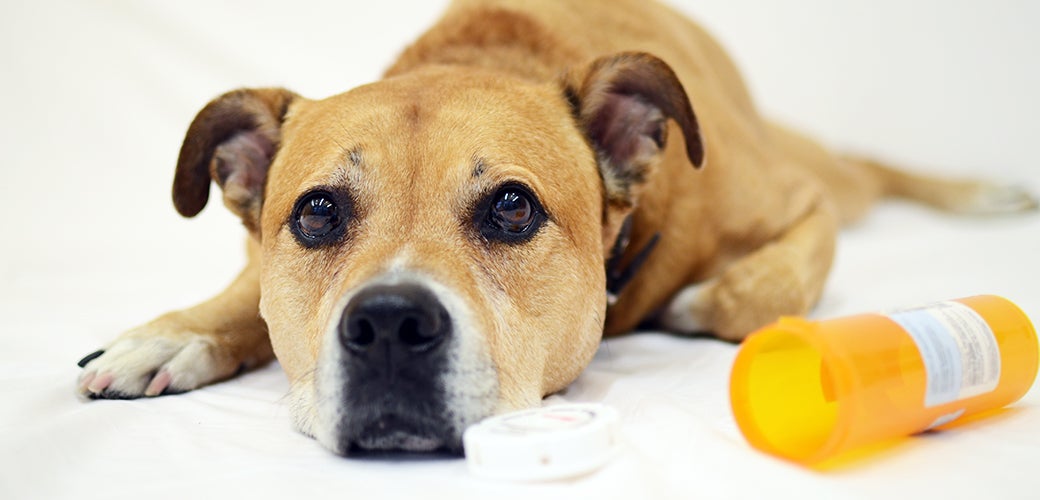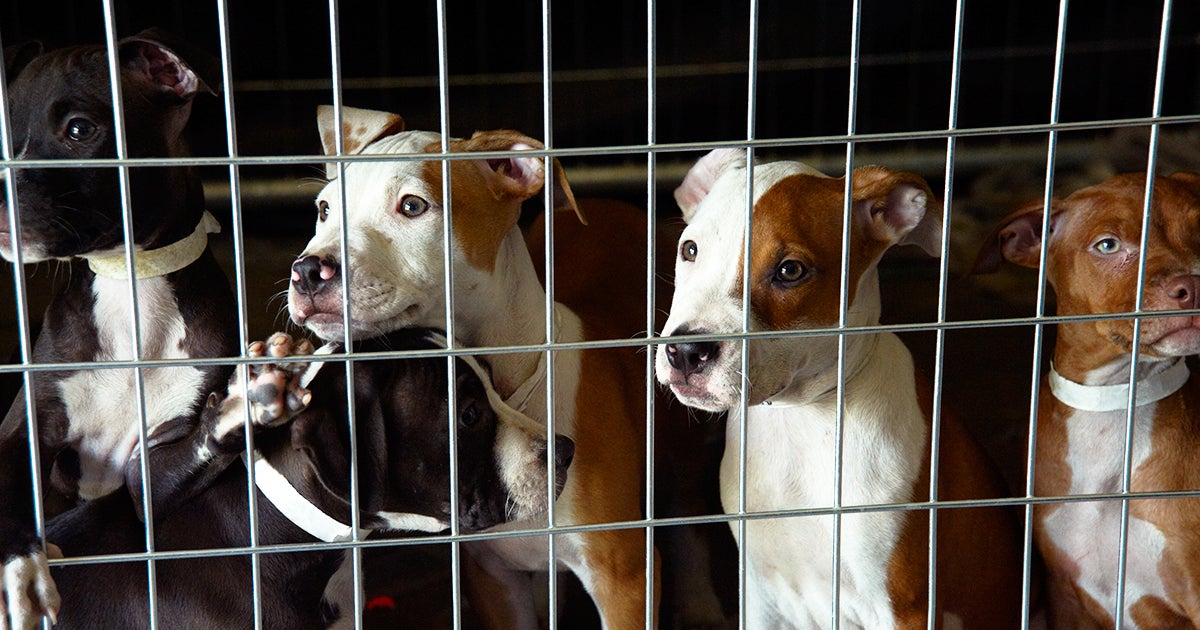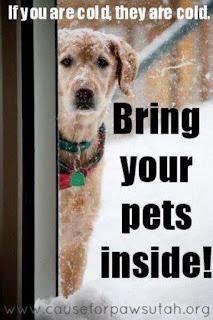Announcing the Top Pet Toxins of 2015:

March is National Animal Poison Prevention Month, and we’d like to kick it off by sharing our list of toxins most commonly ingested by pets—and reported to the ASPCA Animal Poison Control Center (APCC)—in 2015. The APCC has revealed that for the first time ever, over-the-counter medications and supplements surpassed prescription medications to take the top spot. Check out the full list below!
- Over-the-counter medications: These medications, including herbal and other natural supplements, attracted the most concern this year for the first time in the APCC’s history, with more than 28,500 cases reported. This category is exceptionally large, encompassing nearly 7,000 products.
- Human prescription medications: Prescribed human medications fell to the second spot on the list, representing nearly 16% of all cases. The types of medication to which animals were most often exposed correlate with the most popular medications prescribed to humans.
- Insecticides: Insect poisons accounted for nearly 9% of the calls to APCC (more than 15,000 cases). If label directions are not followed, these products can be very dangerous to pets.
- Human foods: Pets—especially dogs, who ingest human foods more often than cats—can get into serious trouble by ingesting onions, garlic, grapes, raisins, alcohol and xylitol. More than 14,600 APCC cases in 2015 involved human foods.
- Household items: Products found around the home made up more than 14,000 cases in 2015. The most common items for this category include cleaning products, fire logs and paint.
- Veterinary medications: Overdoses of medications prescribed by veterinarians represented more than 7% of total cases in 2015. Chewable medications are very appealing to pets, requiring extra caution.
- Chocolate: Chocolate continues be very problematic for pets, accounting for more than 7% of all APCC cases in 2015—averaging more than 30 cases a day. The darker the chocolate, the more dangerous it can be.
- Plants: Indoor and outdoor plants represented nearly 5% of the calls to the APCC in 2015. Most of these calls involve cats and houseplants. Be sure to understand the toxicity of plants before putting them in or around your house.
- Rodenticides: Rodent poisons can be just as toxic to pets as they are to the mice and rats these products are designed to kill. Last year, APCC handled more than 8,100 cases involving rodenticides.
- Lawn and garden products. These products, including herbicides and fungicides, round out the top ten, accounting for 3% of all APCC calls. It’s incredibly important to store lawn and garden products out of the reach of pets.
Please visit our APCC section to find out more about items that could be poisonous to your furry friends. APCC is your best resource for any animal poison-related emergency—24 hours a day, 365 days a year. If you think that your pet may have ingested a potentially poisonous substance, call your veterinarian or the ASPCA Poison Control Center at (888) 426-4435 immediately.
And while you're visiting today, can you take a few moments to help extract animals from red tape:

Animals are victims more than once because of those that commit crimes against/using them. Then there is the red tape that keeps harming them.
U.S. H.R. 4613—Help Extract Animals from Red Tape (HEART) Act
Sponsors: Rep. John Katko (R-NY) and Rep. Judy Chu (D-CA)
ASPCA Position: Support Action Needed: Please use the form below to email your U.S. representative and urge him or her to cosponsor the HEART Act.
ASPCA Position: Support Action Needed: Please use the form below to email your U.S. representative and urge him or her to cosponsor the HEART Act.
When animals fall victim to cruelty and are seized in federal animal fighting busts, they may endure months-long stays in shelters as the related criminal cases work their way through the court system.
Even with high-quality care, this extended period of legal limbo not only causes extreme stress and behavioral problems for the innocent animal victims involved, but also prevents them from being fully rehabilitated and adopted into new homes. What’s more, the astronomical expense of holding seized animals for long periods of time can cause financial and logistical obstacles for animal organizations and may prevent shelters from assisting in future investigations, which means fewer animals saved.
Fortunately, new legislation recently introduced in Congress will help cut through the red tape for federal victims of animal fighting. The HEART Actwill give judges the authority to require the owners of seized animals to be responsible for the costs of their care in federal animal fighting cases, and help animals find homes faster by expediting the court process which allows them to be re-homed and rehabilitated.
What You Can Do
Proceed to this website link:
Proceed to this website link:
http://www.aspca.org/take-action/advocacy-center/usa-help-extract-animals-red-tape?ms=em_new_advocacy-animalfighting-20160304&initialms=em_new_advocacy-animalfighting-20160304&utm_source=newsalertemail_20160304&utm_medium=email&utm_campaign=newsalert
Fill out the website form to contact your U.S. representative in D.C. and urge him or her to cosponsor the HEART Act. The form has two steps: After you submit your information, you will be able to view and edit our pre-drafted message before authorizing it to send.
On behalf of all animal fighting victims, thank you!
Update: March 23, 2016

As many families prepare to celebrate Easter this weekend, it’s important to keep in mind that this spring holiday may pose potential hazards for our furry friends. Before you hide eggs in your yard and decorate your home, please read the ASPCA Animal Poison Control Center’s (APCC) list of the top four most common Easter dangers:
Update: March 23, 2016
Top Four Easter Hazards for Pets

As many families prepare to celebrate Easter this weekend, it’s important to keep in mind that this spring holiday may pose potential hazards for our furry friends. Before you hide eggs in your yard and decorate your home, please read the ASPCA Animal Poison Control Center’s (APCC) list of the top four most common Easter dangers:
1. Chocolate. The APCC received an average 37 calls a day regarding pets eating chocolate in 2015. Most of those exposures occurred around holidays: Halloween, Christmas, Valentine's Day and Easter. Chocolate can cause gastrointestinal upset, pancreatitis, stimulation to the nervous system (hyperactivity, tremors and seizures) and elevation in heart rate. Not all chocolate is created equally—the darker the chocolate, the less it takes to cause problems for pets. Other ingredients to keep out of your pet’s reach include raisins, macadamia nuts, xylitol and alcohol.
2. Plastic Easter Grass. While pets cannot absorb plastic Easter grass into their bodies, when consumed, this plastic material can become lodged in the gastrointestinal tract and wreak havoc. Signs for concern include vomiting, diarrhea, decrease in appetite, lethargy, and stomach pain.
3. Plants. Many plants can cause issues for pets, but during this time of year, the APCC sees an uptick in calls about Lilies and bulbs that bloom in spring. Lilies (Lilium sp and Hemerocallis sp) can cause serious concerns for our feline friends. Exposure to any parts of the plant can result in kidney injury and gastrointestinal upset.
4. Fertilizers and Herbicides. Warmer weather brings gardening and yardwork. Many pet parents will use fertilizers and herbicides in their yards, and while these don’t often cause serious problems, it is best to keep pets indoors while applying the products, follow label instructions and wait to let your pet out again until the product has been watered in or the ground is dry.
© 2016 American Society for the Prevention of Cruelty to Animals. All rights reserved.
The ASPCA is a 501(c)(3) non-for-profit organization.
Until next time….hug your animals. Tell them you love them. If you don’t have a pet, adopt one. Make adoption your first option when seeking a pet. Adopt. Don’t shop. Can’t adopt. Please consider fostering one. The animal will have the taste of home and the shelter will cover the expenses. Can’t foster? Make a donation or volunteer at your local shelter. Please, don’t hunt. Unless you’re starving down in a ditch somewhere, there is no logical reason to do so. Whatever you do, however you do it, please be a voice for the animals large and small. All it takes is one to make a difference, good or bad. I’m one for the animals. Are you? Thanks for visiting. Stay safe. Be strong. Be happy. Smile. Show compassion. Be nice to one another. Pass it onward.
Regards,
Regards,
S.J. Francis
In Shattered Lies: "It's All About Family." Available now from Black Opal Books and for sale at on-line retailers and independent booksellers.
“Some secrets should remain that way.”
My Black Opal Books Author Page:
http://www.blackopalbooks.com/author-bios/bio-sj-francis
View My Shout Out: http://bit.ly/1r3oynM
My web page: http://www.sjfranciswriter.com
Twitter: https://twitter.com/sjfrancis419
Facebook fan page: https://www.facebook.com/pages/SJ-Francis/480058115420325
My writing Blog: http://sjfranciswriter.blogspot.com
A Book Review 4 U: http://abookreview4u.blogspot.com
A Consumer's View: http://aconsumersview.blogspot.com
Pinterest: http://www.pinterest.com/sjfrancis419/
Google Plus: https://plus.google.com/u/0/104831238907682620486/about
Good Reads: https://www.goodreads.com/user/show/33550975-s-j
And now for some legal stuff: Copyright 2015 by S.J. Francis. Opinions expressed here are solely those of the author, S. J. Francis and are meant to entertain, inform and enlighten, and intend to offend no one.



No comments:
Post a Comment